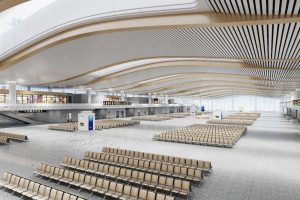Yiwu is well known for its small commodity wholesale market, Yiwu International Trade Market. Then what about the history of Yiwu? How it became a city like now? A documentary of Yiwu now is well produced by Yiwu government. From the fossils of dinosaur eggs in prehistoric civilizations to the bridgehead relics of Shangshan culture, from the ancient Shuanglin temple with a thousand years of history to the one-hundred-year old red revolution sites….
This documentary called “The General History of Yiwu” is divided into 20 episodes, taking Yiwu’s unique cultural heritage as the starting point and combining historical documents, ideological discussions and humanistic interpretations. It longitudinally combs the historical context of Yiwu from prehistoric to modern times in the order of time development, while extends and diverges horizontally, selecting the most representative characters and the most ornamental natural landscape of Yiwu, reflecting Yiwu spirit of diligence, integrity, courage and tolerance.
Here is the link you can see all episode: https://www.iqiyi.com/a_19rrhw3spt.html.
Episode 01: The Land and People of Yiwu
To understand a city, you must start by understanding its geographic features. This episode introduces Yiwu’s natural and cultural environment from its territory, geography and climate, historical relics and remains in ancient times, activities of ancestors and changes of population in previous dynasties, which presents Yiwu’s splendid human features and profound history and culture, revealing the formation and development of Yiwu spirits and its practical significance.
Episode 02: Yiwu in Ancient Times
Wushang (old name of Yiwu), is an ancient county with a long history, where its historical and cultural heritage embellishes this land like a pearl. The primitive porcelain of West Zhou Dynasty tomb in pingchou village, ancient well in Xiuhu Square… All bear the connotation and national spirit of Wushang culture. Through the representation of many historical and cultural heritages of “the past and the present”, this episode leads the audience through time and space, unveils the mystery of history, and appreciates the unique styles of Wushang.
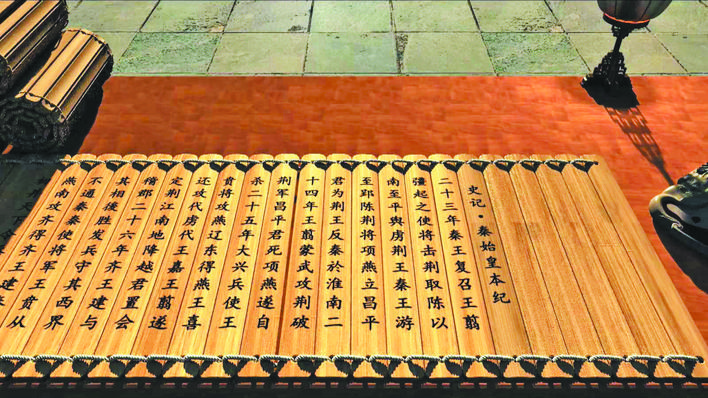
Episode 03: Build a County
Underneath the high-rise buildings in Yiwu, there are thousands of years of civilization. The story of the filial son of Yanwu and the relics of Qiaotou in west of the city explain the origin of Yiwu from different angles.
What was Yiwu like in the Qin and Han Dynasties? This episode shows the establishment of Wushang County in the Qin and Han dynasties where historical data is relatively scarce. It restores the real situation of Wushang County with rich historical materials, and explains by historical facts: what changed and affected the distribution of the Chinese population at that time, and what drove the climax of Yiwu’s economic development then.
Episode 04: Master Fu of Buddhism
Buddhism was introduced into China at the end of the Western Han Dynasty, and flourished in the Three Kingdoms, the Jin Dynasty and the Northern and Southern Dynasties. Then it became the most important belief of Chinese people, affecting every field in China like literature, architecture, painting, music, etc., and greatly expanding Chinese culture in breadth and depth. In Yiwu, people have also created brilliant Buddhist culture, from famous Fotang town, to Buddhist scholars like Huiyue, Master Fu and others. When it comes to the Liang Dynasty, Buddhist worship in Yiwu has become more and more intense, which has a profound impact on future China and even overseas.

Episode 05: Luo Binwang—-A Master of Literature
Yiwu is not only splendid in its scenery, but also outstanding in its talented people. There are many talented people here. Among them, Luo Binwang, one of the “Four Great Masters of the Early Tang Dynasty”, is not only well-known in the literary world. With his own poetic theory and creative practice, he has made fruitful contributions to the prosperity of Tang literature, and has become an influential figure in the history of Chinese literature. At the same time, the flourishing of Yiwu tea and other economic crops in the Tang Dynasty and frequent overseas exchanges further promoted social development.
Episode 06: Xiuhu Lake
During the Tang and Song dynasties, Yiwu’s agriculture and commercial economy both developed steadily, and its taxation once became the first of the eight counties in Wuzhou. The improvement of agricultural production has promoted the sideline production of livestock raising, slaughtering and grain processing. Among them, silk weaving, wine making and ceramics are the most developed. In the Song Dynasty, Wu Wo, who was once a county magistrate, managed Xiuhu Lake and played an important role in the development of local agriculture.
Episode 07: Zongze
In the late Northern Song Dynasty, due to political corruption, the government did not resist the invasion of Liao and Xia. Instead, they gave money to those invaders for peace and people suffered. Yiwu people are loyal and brave, which is reflected in their feelings of home and country. Zong Ze is an outstanding politician and military strategist who emerged in the struggle anti Jin, and is a famous national hero in China’s history. This episode shows a more vivid and comprehensive Zongze. He is not only a hero of anti Jin, but also a talented person with rich knowledge, and a general who knows people and is good at their duties. With his promotion, a generation of anti-Jin star Yue Fei has regained prominence.
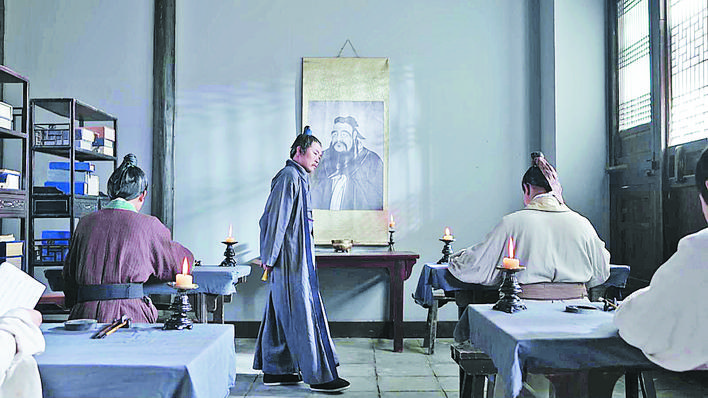
Episode 08: Neo Confucianism
Since the Song Dynasty, Yiwu has been aiming at training students to enter the imperial examination. There have been many teaching institutions such as county schools, social studies, right schools, academies, and private schools. These institutions played a crucial role in the academic ideology and talent training of the Song Dynasty. Therefore, in Yiwu at that time, diligence and learning became common. There are many successful students and a group of talented celebrities have emerged. In this episode, Xu Qiao, a statesman and Neo Confucianism scholar in the Southern Song Dynasty, is taken as a clue to describe the spread and far-reaching influence of Neo Confucianism in history.
Episode 09: Zhu Danxi—-A Master in Medicine
The Yuan Dynasty attached great importance to medicine and the emergence of talents in the medical field was the heyday of the history of Chinese medicine. Among them, Zhu Danxi from Yiwu has the greatest influence on traditional Chinese medicine and even world medicine. His academic thoughts, medical theories, and medical technology achievements have been hailed as “a medical master in the history of Chinese medicine.” His “Ministerial Fire Theory” had a great impact on the development of later medicine, which even spread overseas, being highly regarded by Japanese medical scientists. The doctrine he founded later developed into the “Danxi School”. His personality charm is the best interpretation of Yiwu Spirits. His son Zhu Yuru, his younger brother Zhu Sisi, and grandson Zhu Zongshan are also famous for their medical skills.
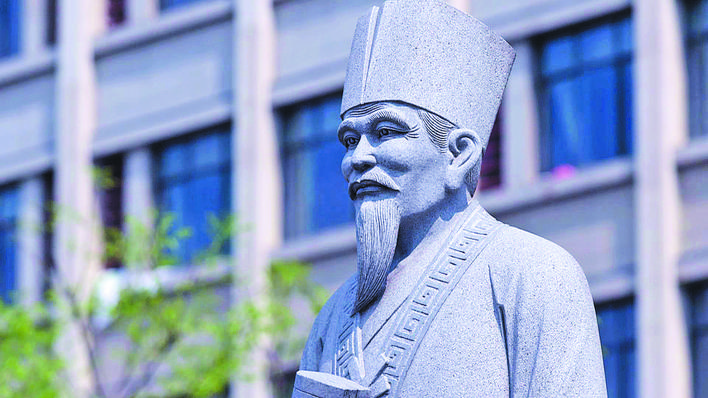
Episode 10: Market and Street in Ancient Yiwu
Today, Yiwu has developed logistics and amazing throughput. Hundreds of years ago, such prosperity mainly counted on the Yiwu River. The surging river has nurtured Yiwu people and is also the channel for Yiwu to communicate and trade with the outside world. In the Ming Dynasty, the commodity economy of towns developed rapidly, and some rural areas in China have formed a unique and mature economic form—-the township economy. Based on the clue of “Top Three Yiwu Treasures” of ham, candied dates and brown sugar, this episode describes the prosperity of Yiwu’s commodity economy and market during the Ming and Qing Dynasties. It has laid a far-reaching foreshadowing for Yiwu to become a “city of international trade” in the future.
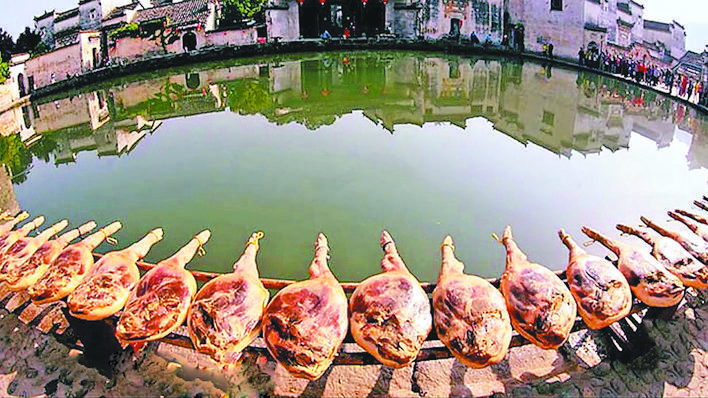
Episode 11: Yiwu Soldiers
In the history of China, there were only two military forces named after the commander: the Yue Army in the Southern Song Dynasty and the Qi Army in the Middle Ming Dynasty. The main force of Qi Army, led by Qi Jiguang, came from Yiwu, Zhejiang, known as Yiwu soldiers. Yiwu soldiers destroyed the Japanese pirates in the South and built the Great Wall in the north, making indelible contributions to the construction of Simatai and Laolongtou walls. They took enemy’s platform as their home, reproduce and live, and develop into villages of countless descendants of “Yiwu soldiers” at the foot of the Great Wall. For more than 400 years, the descendants of these “Yiwu soldiers” who have integrated the customs and cultures of the north and the South have been guarding the Great Wall for generations with their perseverance and will.
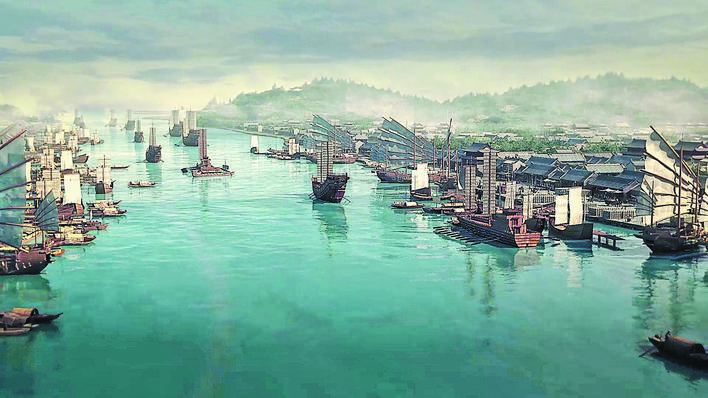
Episode 12: The Sugar Bearers
The history of China’s Sugar Bearers can be traced back thousands of years, and Yiwu Sugar Bearers is undoubtedly the most outstanding one. With loads on their shoulders, Sugar Bearers built the nowadays global small commodity trading center—-Yiwu. Developing from chicken feather for sugar at the very beginning to operating daily necessities and rising in the world economy, reflecting the profound heritage of thousands of years of civilization in China, which is the the epitome of Chinese people’s tenacity, courage and hard-work.
Episode 13: Wu Opera
The cultural prosperity of Yiwu in Ming and Qing Dynasties was multi-layered, multi-angled, and diversified. As a “state of culture”, Yiwu has many intangible cultural heritages. There are 80 non-heritage items in Yiwu, among which Wu Opera is a typical representative. The Wu Opera, which has been passed down for more than 500 years, is deeply loved by local people. Most of the ancestral halls or temples in Yiwu have a theater. Every festival, there is always a lively Wu Opera, which is popular among people in Yiwu. It introduces the outstanding masterpieces, representative figures of Yiwu Wu Opera and the development of modern Wu Opera in Yiwu, and deeply discusses the interaction between Yiwu Wu Opera and Yiwu spirits.
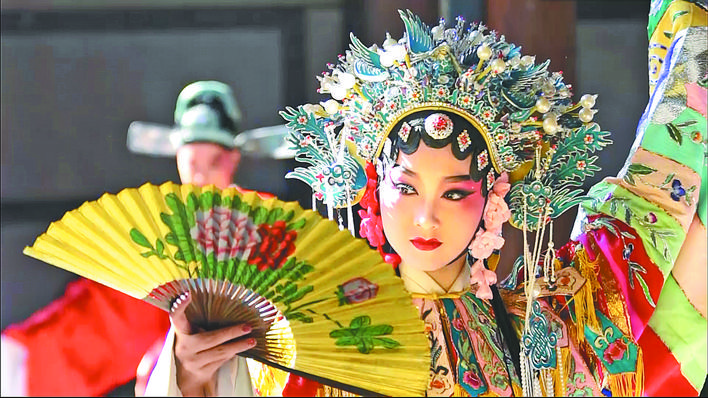
Episode 14: Ancient Towns in Yiwu
The rolling black tiles and white walls, the towering brick gatehouse, and the moss on the slate… The ancient village of Yiwu is the shadow of the era, the footprint of the ancestors, and the heritage of history. Yiwu ancient village is a splendid picture that unfolding between heaven and earth. It has accumulated a deep history and witnessed the tortuous and touching stories of Yiwu people in the past.
This episode introduces the four ancient villages of Dumen village, Huaxi Village, Dayuan village and Yan village. They not only have ancient architectural relics, but also are the model of family style. Each ancient building records the history of a family and interprets a moving story.
Episode 15: Zhu Zhixi—-A Famous Officer from Yiwu
Zhu Zhixi, a famous official in the early Qing Dynasty, served as Minister of Military and Governor of River Course during the Shunzhi period. Zhu Zhixi has been governing the Yellow River, Huai River, and the Canal for 10 years, sparing every effort on his job. He is only 44 years old when he passed away in his office. Being an honest officer for his entire life, he has ruled the river and benefited people. People praised his preferential policies and regarded him as the “God of the river”. They set temples and sacrificed in the spring and autumn, calling him “King Zhu”.
Episode 16: Zhu Yixin—-A Master in Late Qing Dynasty
In the study of modern Chinese academic history, Zhu Yixin must be mentioned. Zhu Yixin is an upright official, and abundant in his writing, especially in the study of Confucian classics. He is one of the famous scholars in the late Qing Dynasty and the representatives of the Han Song reconciliation school.
Zhu Yixin emphasized reading history and attached great importance to Western learning. He played a great role in guiding student to make progress, to understand Western studies and to train foreign affairs talents. His argumentation on Kang Youwei’s “New Learning Pseudo-Scripture Examination” has typical significance in studying the history of modern academic thought.
The legendary great life of Zhu Yixin outlines the social turbulence in the late Qing Dynasty while talents and culture were still flourishing in Yiwu, showing its profound cultural heritage.
Episode 17: Water Transportation in Republic of China
In the early period of the Republic of China, water transportation was the peak period of Yiwu’s shipping. With the prosperity of waterway in Yiwu and the emergence of modern transportation industries such as roads and railways, Yiwu’s commerce showed an increase in the number of fairs and towns and expanding of the fair scales and types of commodities.
In this episode, we focus on ancient Fotang Town in the boat and shipping, which relied on the railway in modern era. By combing the history and culture, geographical location, transportation conditions and other aspects of Fotang Town and Choucheng Street, the magnificent peak of commerce in Yiwu was on the show.
Episode 18: The Taste of the Truth
Yiwu’s tolerance and openness make it one of the important birthplaces of China’s advanced ideas. In the history of the early revolutionary struggle of the Communist Party of China, Yiwu is a unique existence. It has a long-standing revolutionary tradition, which has bred advanced ideas that yearn for democracy and science, and a large number of outstanding Communists and cultural scholars. Feng Xuefeng, Wu Yan, Chen Wangdao and others have all moved to the forefront of the Chinese revolution and made outstanding contributions to the cause of the party and the establishment of People’s Republic of China.
Episode 19: Yiwu Battalion
During the Anti-Japanese War, at the critical moment of national calamity, Yiwu people bravely came forward. Yiwu has organized a large number of Anti-Japanese troops and a large number of heroic struggles and characters have emerged. The earliest mass organization of the Anti-Japanese War was “Yiwu Battalion“. Its official designation was the Special Agents Brigade of the General Command of the Zhejiang Anti-Self-Defense Forces. The vast majority of the soldiers of this troop were Yiwu people who volunteered to fight against Japan. They braved the enemy’s artillery and fought with blood, playing a heroic anthem against Japanese invasion.
Episode 20: World’s Capital of Small Commodity
Over the past 40 years, Yiwu has undergone tremendous changes from the initial “chicken feathers for sugar” to the world’s “capital of small commodity.” Yiwu, once a small traditional agricultural county in Zhejiang province, had little and poor land. 40 years ago, having enough food was everyone’s greatest wish. Reform and opening up have inspired the vitality of Yiwu. Now it has become China’s largest small commodity export base and the world’s largest small commodity distribution center. On the road to reform, Yiwu has never stopped. The story of its development is endless. And the future of Yiwu is still expected.




